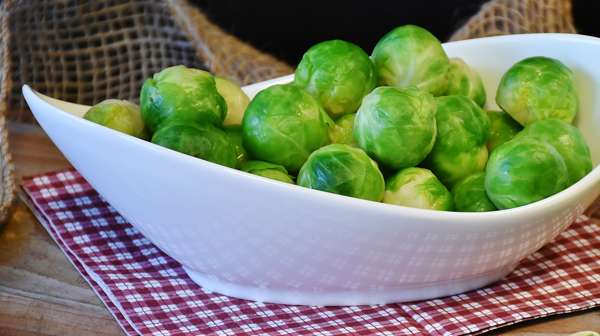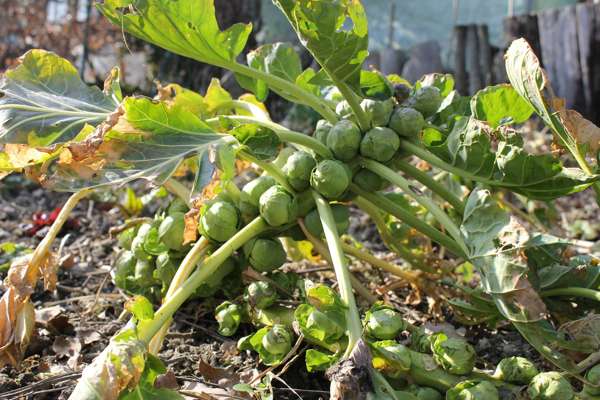Brussels Sprouts
Brussels sprouts are a vegetable native to ancient Belgium near the city of Brussels.
Why children sometimes don't like Brussels sprouts
 Brussels sprouts tend to have a bad reputation with children. This is mostly because overcooking Brussels sprouts can leave a sulphuric smell and foul taste, but if cooked properly for about 7-8 minutes, they are a healthy, tasty additional to meals.
Brussels sprouts tend to have a bad reputation with children. This is mostly because overcooking Brussels sprouts can leave a sulphuric smell and foul taste, but if cooked properly for about 7-8 minutes, they are a healthy, tasty additional to meals.
How do Brussels sprouts grow
 These greens belong to the same Brassica family of vegetables as broccoli, cauliflower and cabbage. They look like mini cabbages that measure about 2.5-4 centimetres in diameter. The buds grow on plants that measure about 60-120cm in height rather than on the ground like broccoli and cabbages. Each stalk has about 15-20 sprouts on it. Brussels sprouts grow best in cool temperatures between autumn to spring.
These greens belong to the same Brassica family of vegetables as broccoli, cauliflower and cabbage. They look like mini cabbages that measure about 2.5-4 centimetres in diameter. The buds grow on plants that measure about 60-120cm in height rather than on the ground like broccoli and cabbages. Each stalk has about 15-20 sprouts on it. Brussels sprouts grow best in cool temperatures between autumn to spring.
Brussels sprouts nutritional value
The nutritional value of Brussels sprouts has been mentioned in the World's Healthiest Foods by author George Mateljan who has documented the levels of vitamins and minerals you can obtain from one serving of Brussels sprouts. One daily serving of Brussels sprouts is around 150 grams. For example, 100% of your daily vitamin C needs, 23% of folic acid needs, 22% of vitamin A needs and 16% of dietary fibre can be gained by eating one serving of Brussels sprouts.
Brussels sprouts today
Factors that contribute to its status include its affordability and availability in Europe and North America. Brussels sprouts are most popular in the Netherlands, Germany, United Kingdom and the United States where tens of thousands of tons are harvested each year. Frozen Brussels sprouts are easy to find in supermarkets in Belgium.